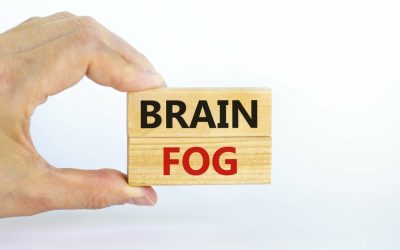Over time, chronic heavy drinking can even lead to more severe brain disorders like Wernicke–Korsakoff syndrome (WKS), characterized by profound memory and coordination issues. While occasional brain fog after drinking is manageable, chronic alcohol consumption can lead to longer-lasting cognitive impairments. Long-term alcohol use can affect memory, concentration, and the ability to process information effectively. If you find yourself frequently struggling with brain fog after drinking, it may be worth examining your alcohol habits. Long holiday weekends often feel like an invitation to relax and indulge, which can lead those with problematic drinking habits to rationalize excessive consumption. Finally, alcohol can also disrupt our natural sleep cycle and reduce our overall quality of sleep.
How Resurgence Behavioral Health Can Help You Stop Brain Fog 3 Days After Drinking
In moderation, dark chocolate beverages can be beneficial due to their flavonoid content, which may improve brain function. Opt for dark chocolate with a high cocoa content to reap the benefits without excessive sugar. You drug addiction probably don’t feel mentally prepared for much beyond Netflix, but you can begin to banish brain fog by encouraging those synapses to fire. Download an easy word puzzle app or go old-school with a book of crosswords or Sudoku. By the end of the day, you’ll be confident enough to switch from pencil to pen.
Sleep Your Way to Clarity: Natural Brain Fog Remedy

A relapse prevention plan helps individuals in recovery stay sober by identifying triggers, building coping strategies, and creating a support system for long-term success. Holistic and complementary therapies enhance addiction treatment by promoting emotional, physical, and spiritual healing. Discover how integrating traditional and alternative methods supports lasting recovery and overall well-being.
- After drinking, your body goes into overdrive trying to rebalance itself.
- In addiction recovery, I understand the importance of implementing brain fog remedies to improve cognitive function.
- Chronic alcoholism is frequently linked to brain shrinkage or atrophy, as highlighted by research published in the scientific journal Acta Psychiatrica Scandinavica.
- The chronic consumption of alcohol can lead to brain atrophy, causing oxidative stress and cell injury.
- Used to be a heavy drinker, took experiencing what I’m fairly sure were withdrawal symptoms to realize it was a real problem not just casually irresponsible drinking.
Alcohol also disrupts the balance of neurotransmitters in the brain, particularly affecting glutamate and GABA, which are essential for brain function and memory formation. The central nervous system depression caused by alcohol slows down cognitive processes, resulting in sluggish thinking and reduced mental clarity. The duration of brain fog can vary based on the amount of alcohol consumed, your body’s tolerance, and how well you managed your hydration and nutrition while drinking. Typically, mild brain fog may last anywhere from a few hours to a full day after drinking. However, in cases of heavy drinking or alcohol use disorder, cognitive fogginess can persist for several days. Common hangover symptoms like headaches, nausea, dehydration, and fatigue usually persist for about a day.
Why does brain fog happen after quitting alcohol?
In addition, consider incorporating mindfulness practices like meditation or journaling into your routine. These tools help reduce stress and bring greater awareness to your mental state. Over time, they can support a healthier relationship with your thoughts, emotions, and choices. Each of these effects compounds the others, making brain fog a multi-layered problem.
Remedies for Alcohol Mental Fog
It is important for individuals to consult with healthcare professionals who specialize in addiction medicine to determine the most appropriate medication regimen for their specific needs. Medications, when used in combination with counseling and therapy, can greatly enhance the chances of long-term sobriety. Binge drinking can have severe consequences, including alcohol poisoning. This dangerous condition occurs when an individual consumes excessive amounts of alcohol, overwhelming their body’s ability to metabolize it.
Thankfully, there are plenty of ways that you can do to treat brain fog naturally and alcohol addiction safely, and enhance your brain function, such as the ways we listed above. brain fog from drinking This is because alcohol withdrawal brain fog can be dangerous and even life-threatening. So, if you’re struggling with brain fog from alcohol, do your best to go for a walk in the sunlight every day. Sunnyside is the leading alcohol health platform focused on moderation and mindfulness, not sobriety.
That groggy, cloudy feeling the morning after drinking isn’t just in your head. Brain fog after drinking affects millions of people, leaving them struggling to think clearly, remember details, or focus on simple tasks. While many dismiss this mental haze as a typical hangover symptom, the reality runs much deeper. Sometimes that foggy feeling signals something more serious than dehydration and regret. So, if you’re struggling with alcohol brain fog or any type of cognitive impairment, make sure to spend some time in nature every day.
- Recovery involves more than just stopping drinking—it requires rebuilding healthy habits, managing stress, and, in many cases, seeking professional help.
- Inflammation in the brain has serious consequences for its functioning.
- However, it’s important to note that cognitive impairments resulting from long-term alcohol use can persist even after you stop drinking.
- The best way to combat this issue is to reduce or eliminate alcohol consumption.
- You drink to feel better, experience brain fog and mood problems, then drink again to escape those uncomfortable feelings.
FAQ on Manage Brain Fog After Drinking

With the right support system and resources, it is possible to overcome alcohol-induced brain fog, regain clarity, and pursue a more fulfilling, balanced life. Everybody responds differently to different kinds of alcohol and consumption behaviors. Based on a person’s tolerance and drinking habits, brain fog could last from 12 to 48 hours, until alcohol leaves the system. These tests assess many factors including patient medical history, metabolism and underlying mental health. After a night of heavy drinking or downing some heavy liquor, have you ever felt hungover and confused the next morning?
That lingering effect of confusion and mental cloudiness after significant consumption of alcohol is usually called brain fog. Brain fog affects the cognitive abilities of a person and can cause confusion, forgetfulness and sometimes even compromise motor functions. It happens due to the presence of alcohol or the after-effects of alcohol on your neural function as it dissipates in the bloodstream.

